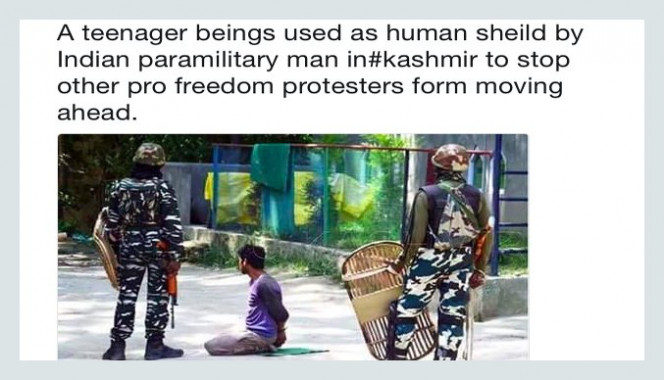Kashmir journos on Twitter’s block list
The Twitter handles of journalists are among the 115 users who the BJP-led government wants to be blocked from the micro-blogging website. On August 24, India’s ministry of Electronics and Information Technology directed Twitter to block Twitter handles/tweets, which according to them have been found “propagating objectionable content”.
The communiqué called for removing the “115 twitter handles/tweets in the interest of public order as well as for preventing any cognizable offence relating to this referred in Section 69A of the IT Act.”
Kashmir-based journalist Wasim Khalid is among the journalists whose twitter handle is on the block list, a copy of which was uploaded on “lumendatabase.org”, a project of the Berkman Klein Center for Internet & Society at Harvard University.
Wasim received a correspondence claiming that his two tweets are in “violation of Indian law”.
https://twitter.com/WasemKhalid/status/875786348380262400
https://twitter.com/WasemKhalid/status/889027004321943552
“Please note we may be obligated to take action regarding the content identified in the complaint in the future. Please let us know by replying to this email as soon as possible if you decide to voluntarily remove the content identified on your account,” it said.
His two “objectionable” tweets are; a story link and a photo in which security forces have made a youth as a human shield to prevent protests.
“I don't think my post has violated any legal codes. According to them, two posts violate the law. In one of the post I have shared the link of my story which has appeared in an online medium. In second I have shared a picture wherein a boy has been used as human shield. In both cases, the content was public,” he told The Hoot.
The former Reuters Institute fellow said that he was surprised as to how the content has violated law as both photo as well as the story was in public domain.
Twitter’s notice also left astonished another journalist, who did not want to be named. His two tweets pointed out in the notice were about his stories including the arrest of a youth by police in Srinagar.
In response to a questionnaire, Twitter told The Hoot they “do not comment on individual accounts for privacy and security reasons”. “Many countries have laws that may apply to Tweets and/or Twitter account content…. if we receive a valid and properly scoped request from an authorized entity, it may be necessary to reactively withhold access to certain content in a particular country from time to time,” it said stating “Country withheld content policy”.
The social media crackdown in loop with the NIA raids is seen as a move to silence the dissenting population in Jammu and Kashmir. Social media has emerged as a parallel space to physical territory where political assemblies and gathering are mostly banned.
Kashmiris adopted this cyberspace after 2010, when mass uprising erupted in the region. During the last year’s five months long protests, dozens of Kashmir-specific posts of academicians, journalists were censored by social media giant Facebook. After failing to control the mass protest, the government has shifted blame on Pakistan for instigating people through social media without any substantial evidence.
Pranesh Prakash, policy director at The Centre for Internet and Society, a non-profit research organisation that works on policy issues relating to freedom of expression apart from other issues, said the order was a “dubious in net legality” as it did not follow the rule of law.
He explained that under 69A, which the government has invoked in its order, the author/account holder has to be provided a prior notice to justify why their accounts should be blocked.
“This is the right to be heard which is whole part of the law. This clearly was not followed. Hence the order to me is dubious in net legality,” said Pranesh.
According to him, the Indian government has not followed the law by issuing the block order.
“Twitter ought to challenge these orders in the court,” he added.







